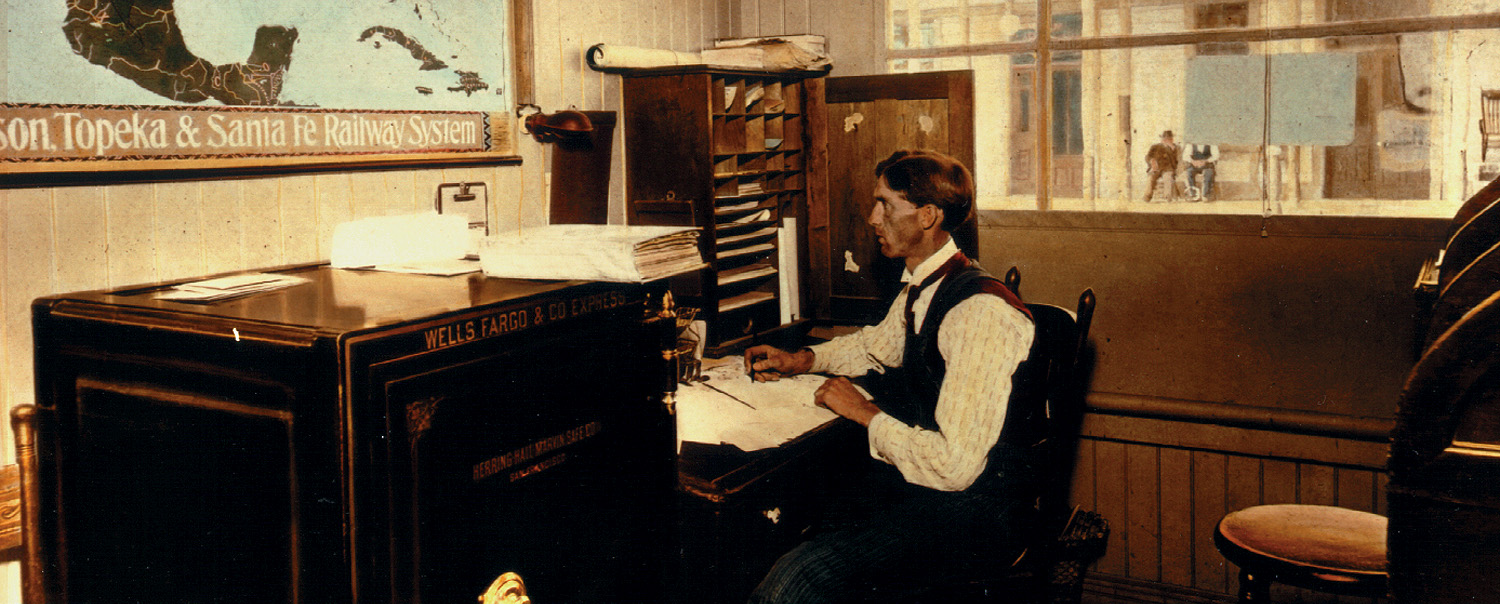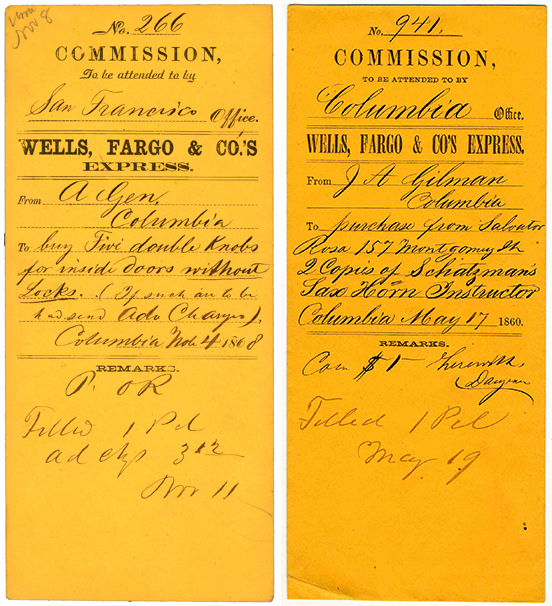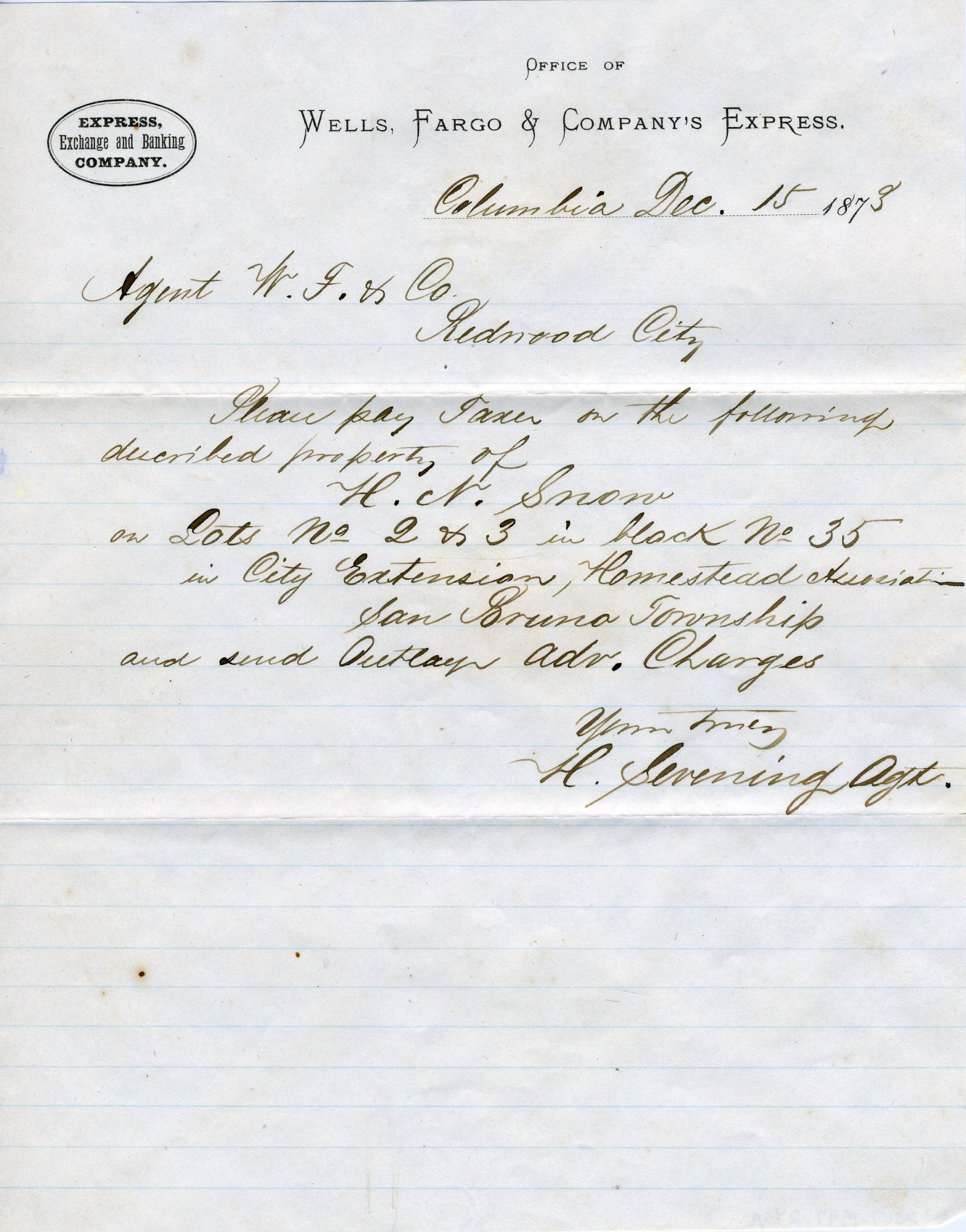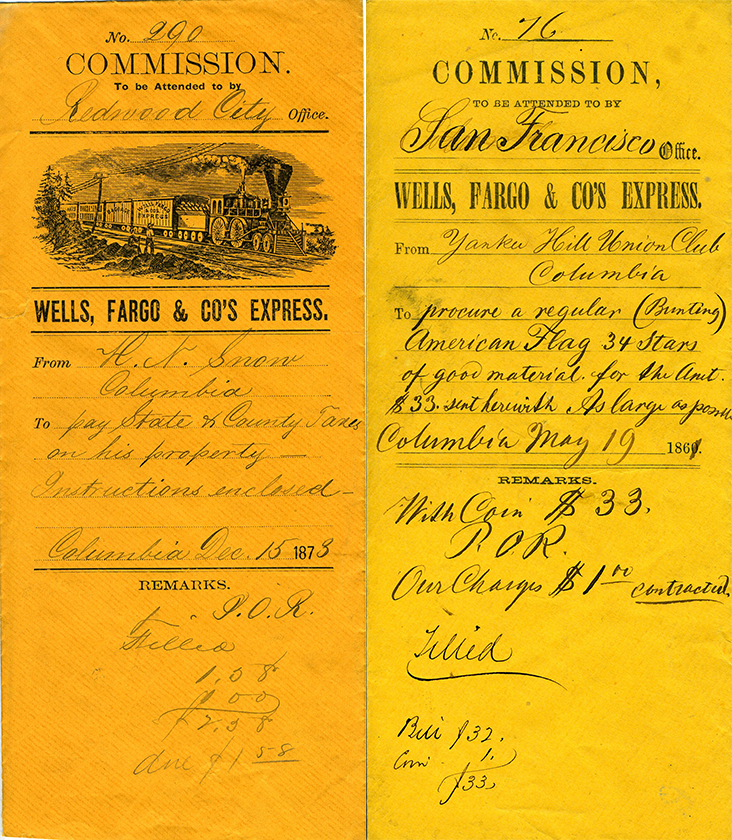Before apps, there was an agent for that

In the last half of the 1800s, long before the ubiquity of online shopping and on-demand delivery, Wells Fargo agents took care of a customer’s personal or commercial business by commission, putting the company’s network of hundreds of agents at the service of individual customers.
Wells Fargo did more than move money and facilitate payments. Whether your business was in the neighboring county or a different state, Wells Fargo had someone on the ground to look after your interests.

The company’s 1871 manual, “Instructions to Agents and Employees,” explained the convenience of commissions: “The most popular feature of an Express, is that it furnishes a reliable, speedy, and responsible medium for the transaction of all kinds of business at places more or less remote from each other …”
By hiring Wells Fargo to handle business, a person could avoid multiple days of travel to pay a bill or file a deed in a neighboring county. Customers also commissioned Wells Fargo’s many agents to make special purchases of goods not locally available, such as fancy doorknobs, two copies of “Schatzman’s Sax Horn Instructor,” or a large 34-star U.S. flag.
In fulfilling the commission business, a local agent filled out a commission envelope, which included instructions from the customer, along with sufficient funds to complete the task. The commission might involve filing a deed in a distant county seat, securing a business license, making a payment on an insurance policy, or locating and purchasing a hard-to-find item. The envelope, instructions, and payment would then be forwarded through the company’s express network to the Wells Fargo agent who could best provide the solution for the customer.

Many Wells Fargo commissions involved payment of taxes. Property owners who were absent when property taxes came due could depend on Wells Fargo’s network of hundreds of agents to handle the important transaction.
In December 1873, H. N. Snow in the mining town of Columbia, California, went to his local Wells Fargo office on an important errand. Snow needed to pay taxes on two lots in distant San Mateo County, south of San Francisco. Agent Henry Sevening wrote to Wells Fargo’s agent in Redwood City, the county seat, outlining Snow’s desire and sent off the commission envelope on the next departing stagecoach.

That commission envelope traveled 69 miles by stage from Columbia to Stockton, California, in Wells Fargo’s treasure box — then eight hours by river steamship to San Francisco, guarded by a Wells Fargo messenger on board. Finally, another Wells Fargo messenger accompanied important express items seven stops on the Southern Pacific Railroad from San Francisco south to Redwood City. En route to Redwood City, the train passed through San Bruno Township and past the two lots that Snow had invested in within the City Extension Homestead Association tract. In Redwood City, Wells Fargo agent S. L. Knight made sure the customer’s business was attended to promptly. For the service, Snow paid Wells Fargo $2.58 and was glad to have found an alternative to taking the long trip himself.
In an era when taking care of business sometimes required a cost of both time and effort, Wells Fargo made life easier for its customers.